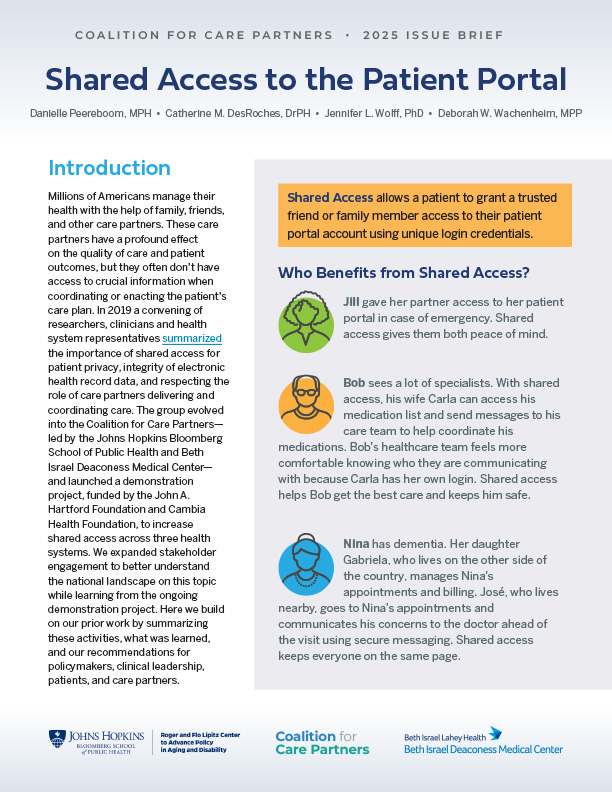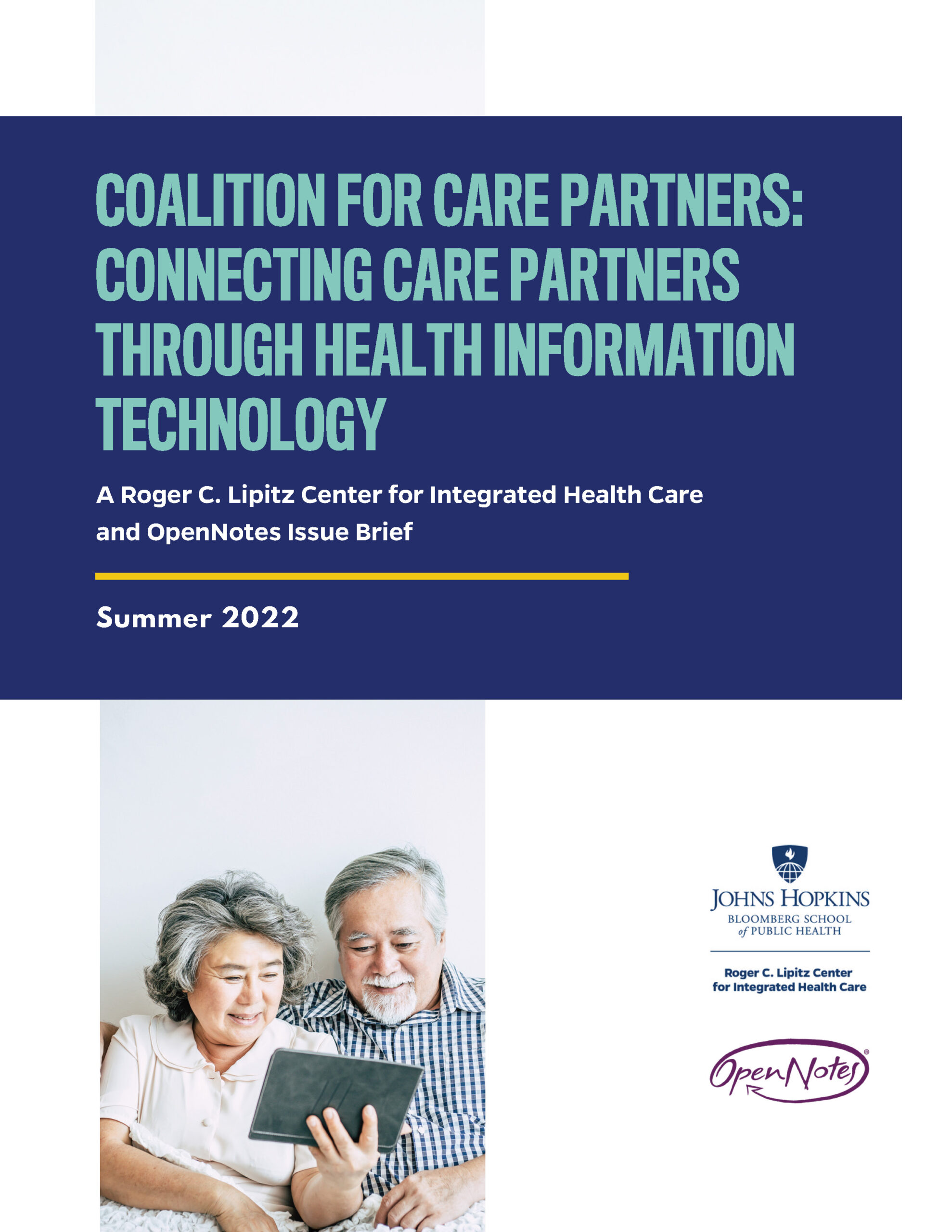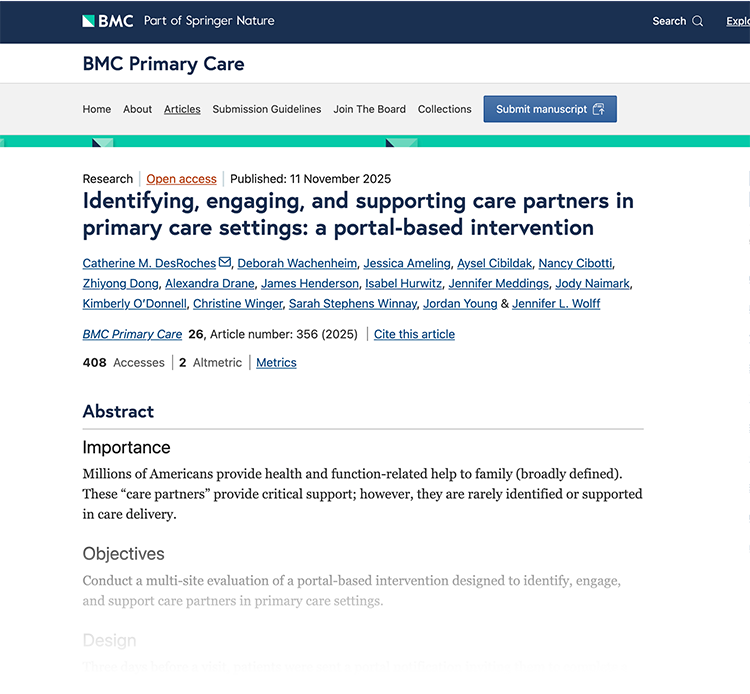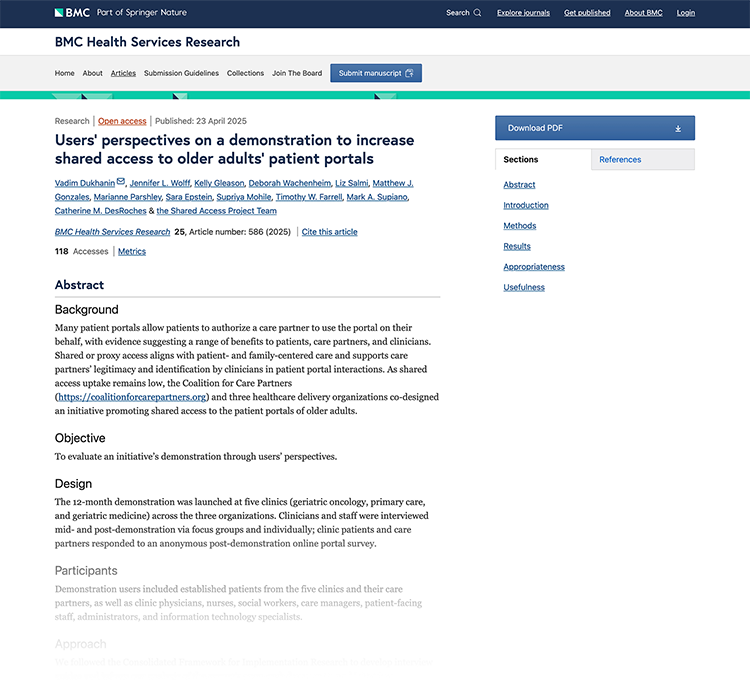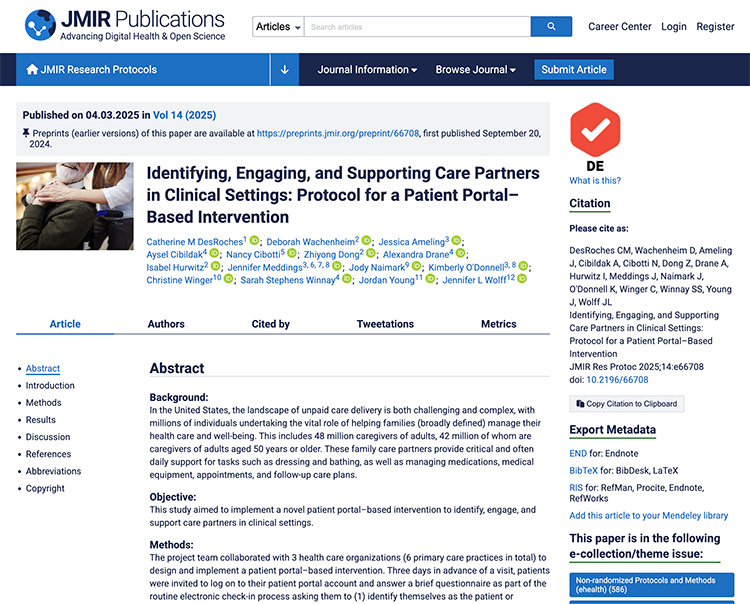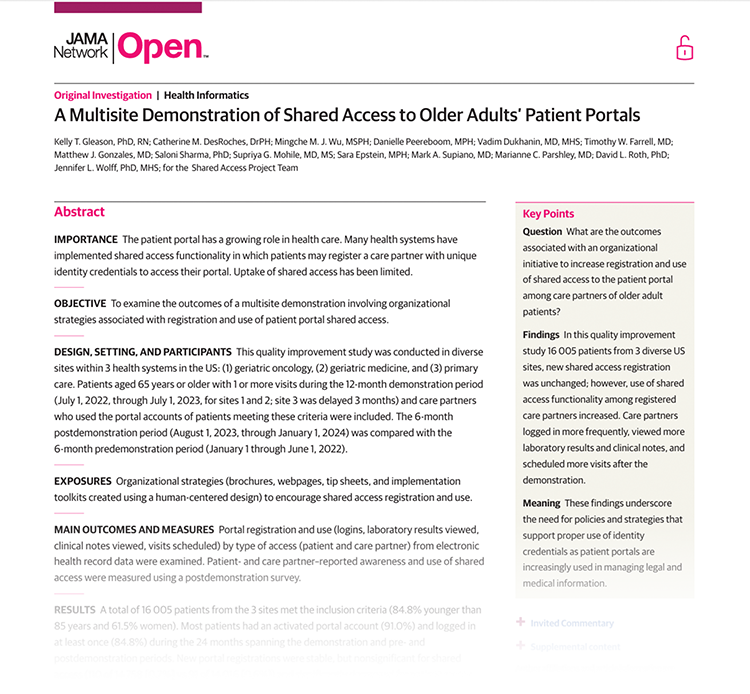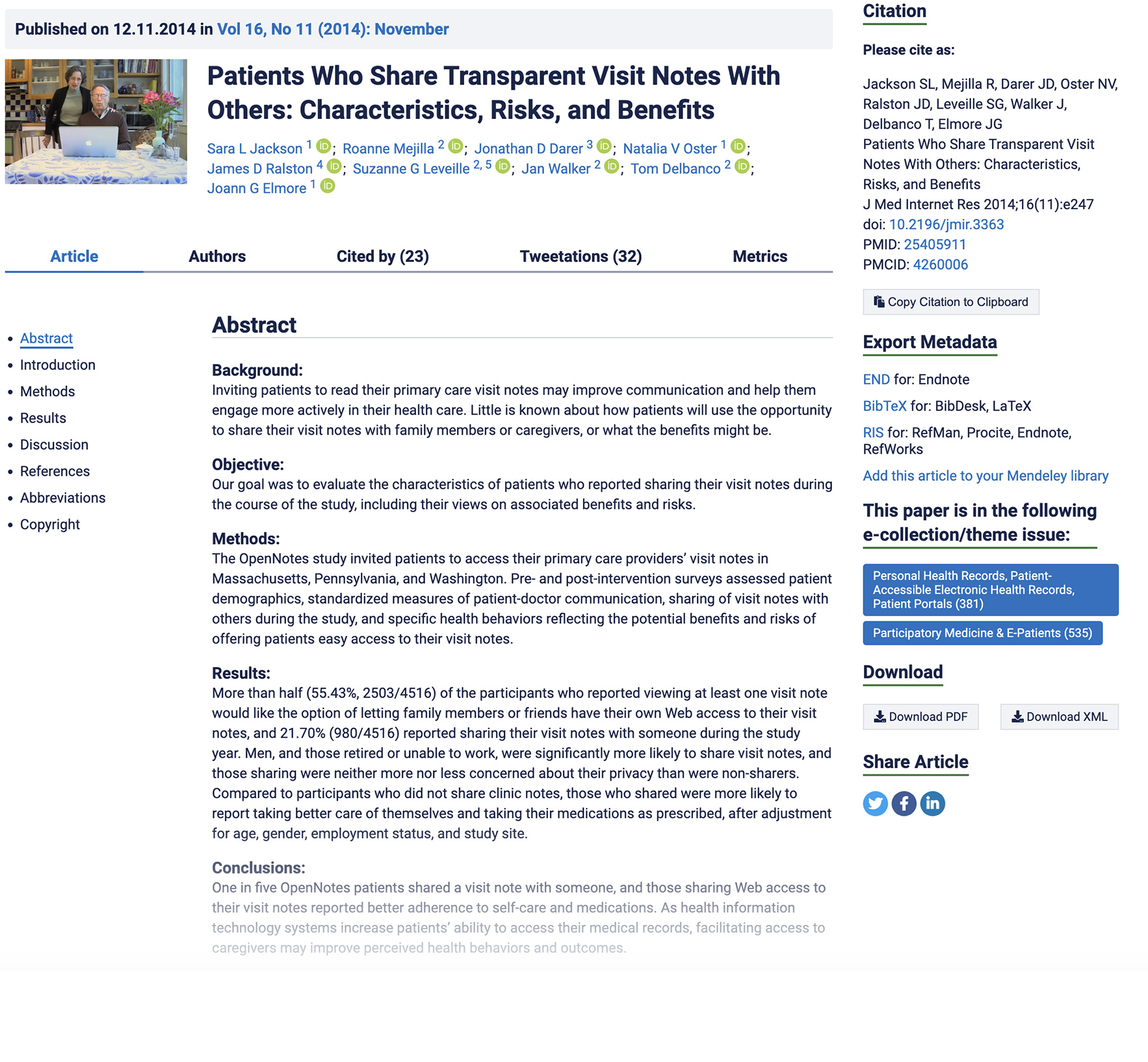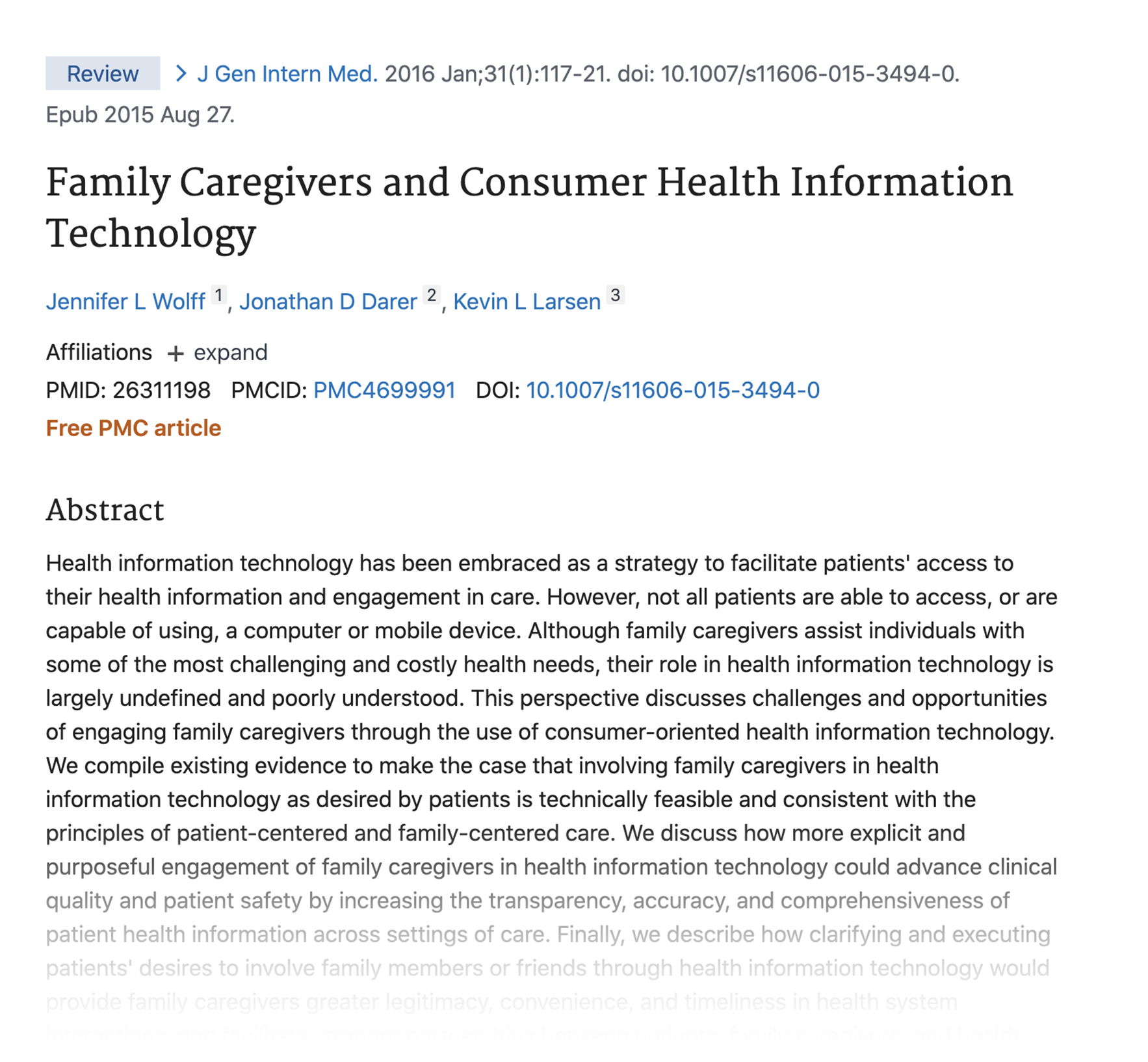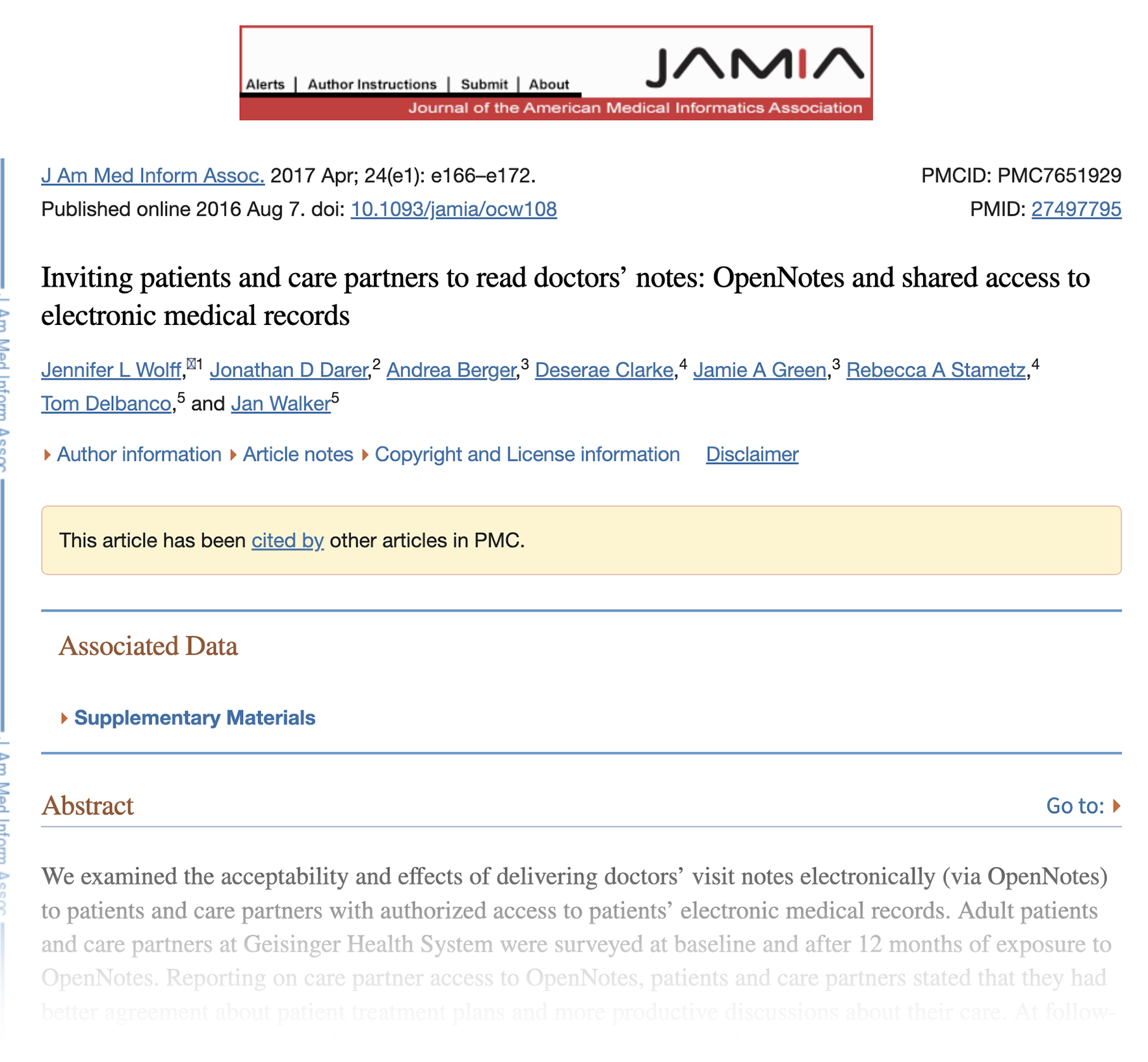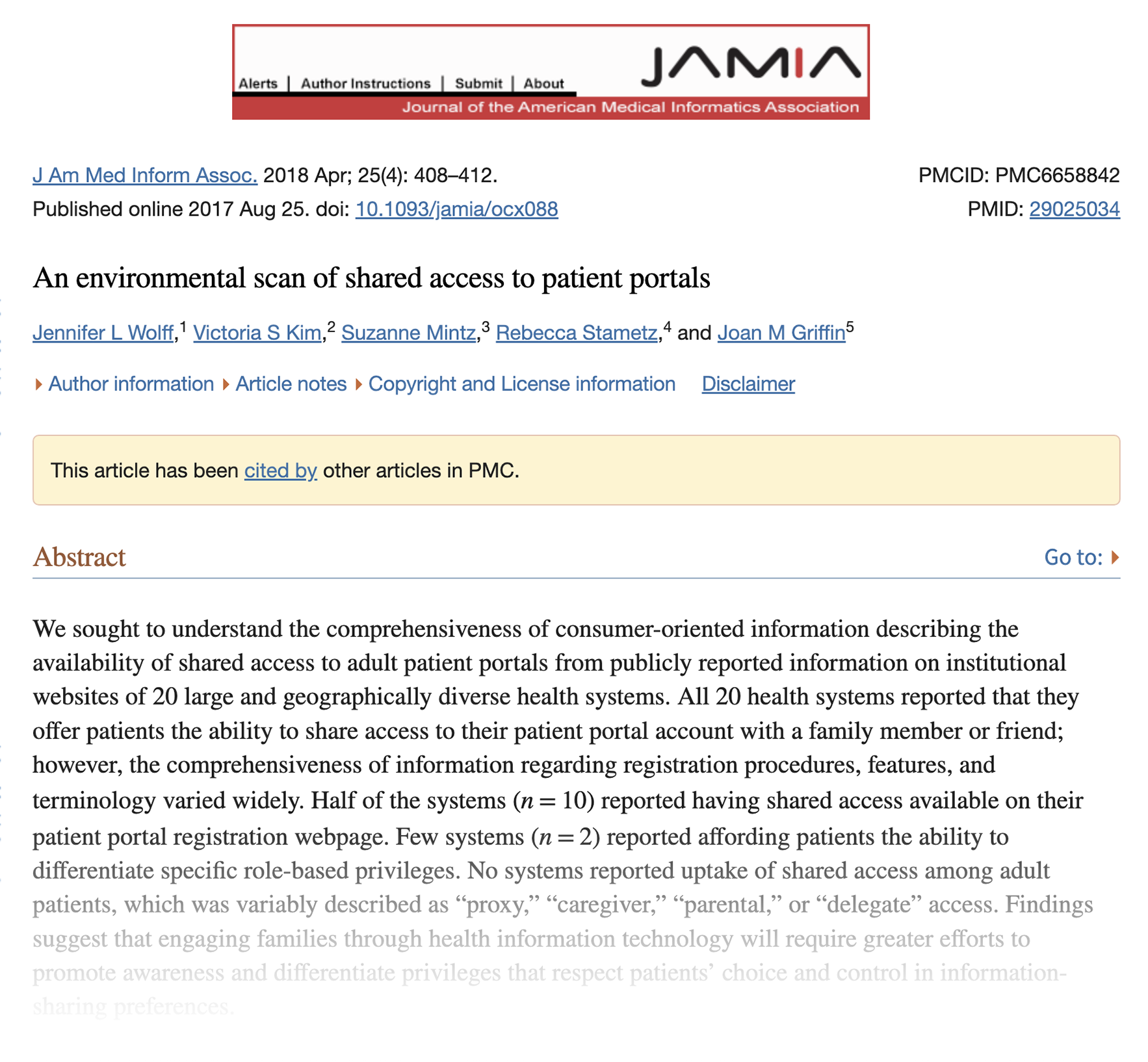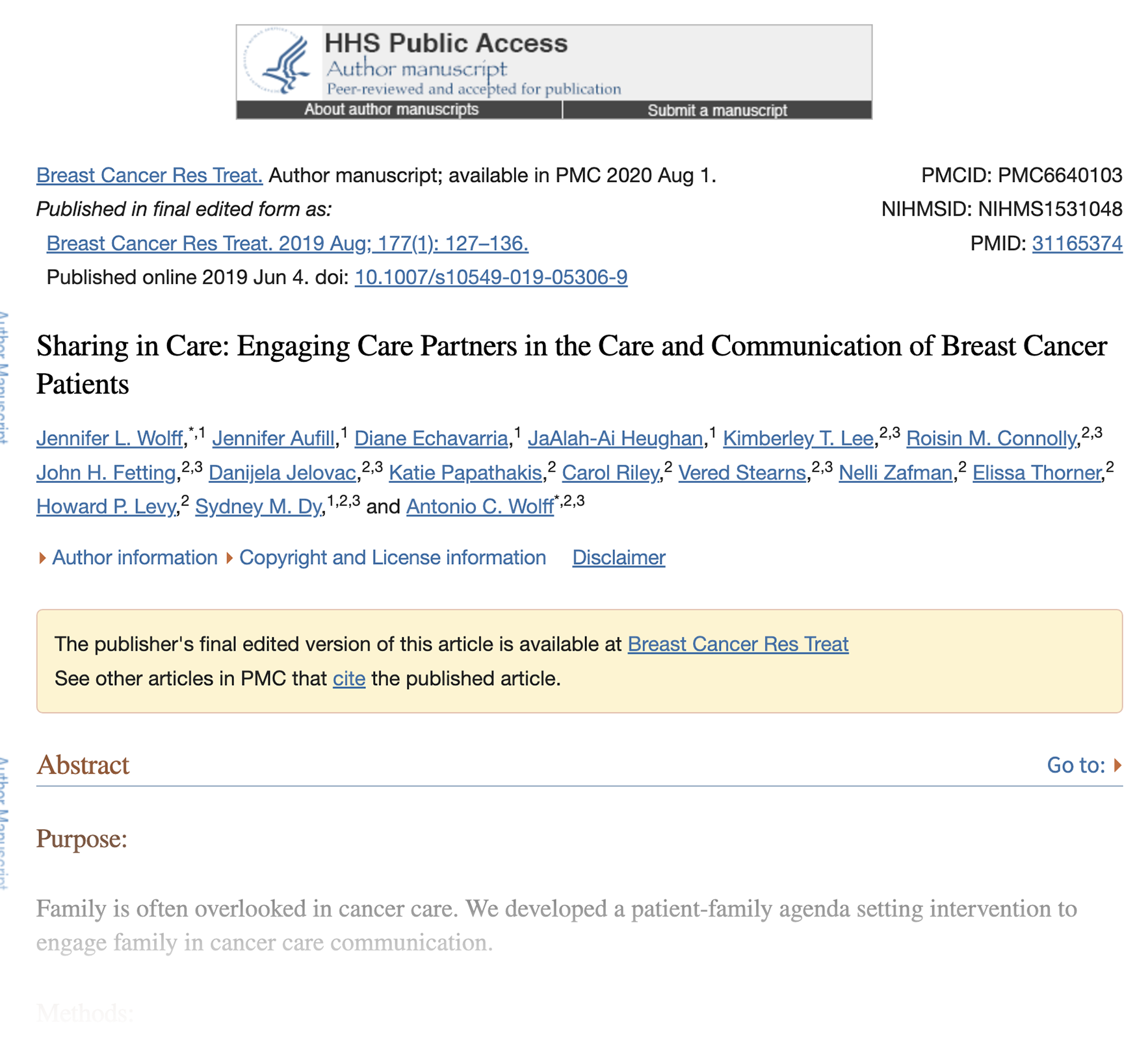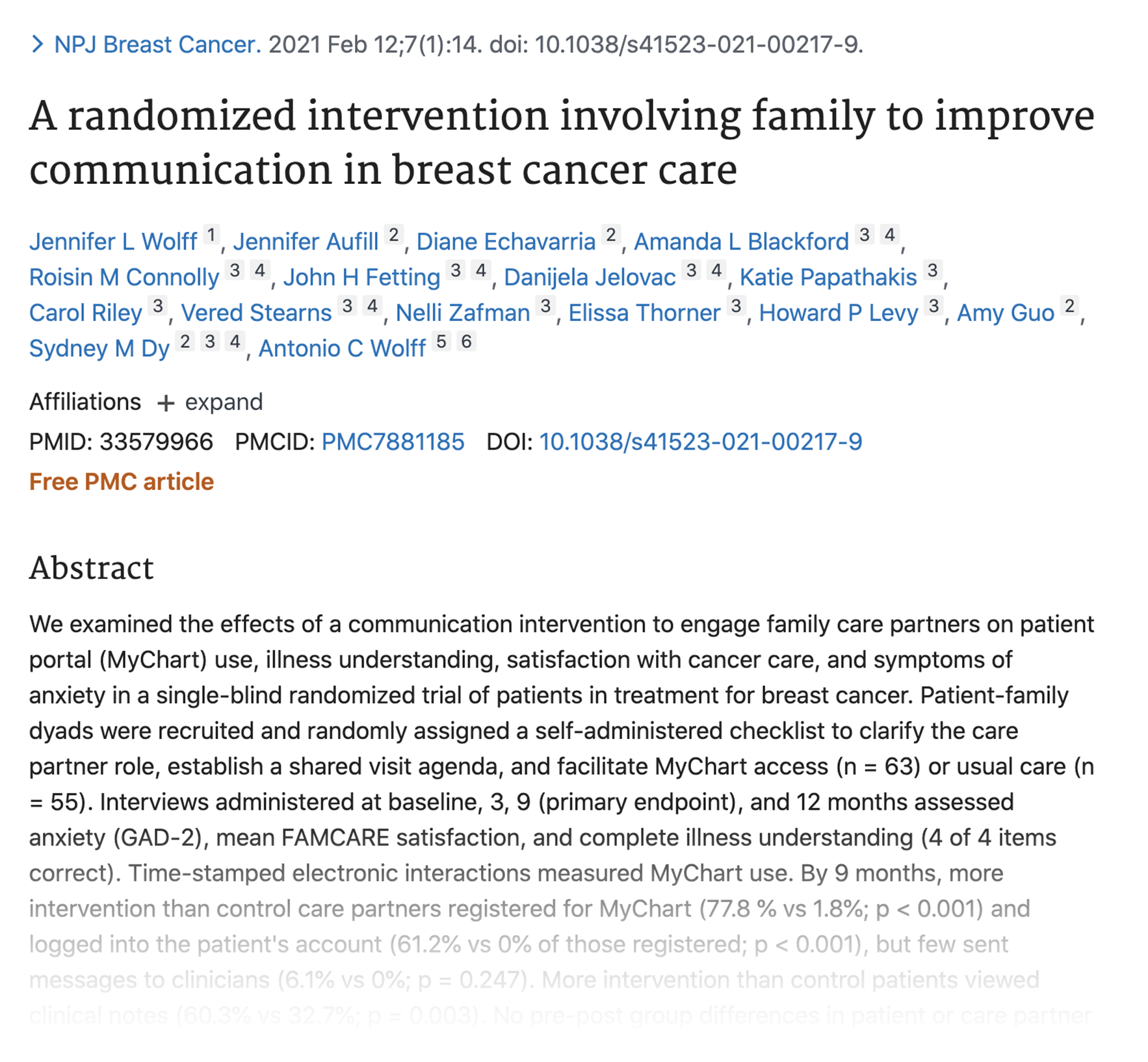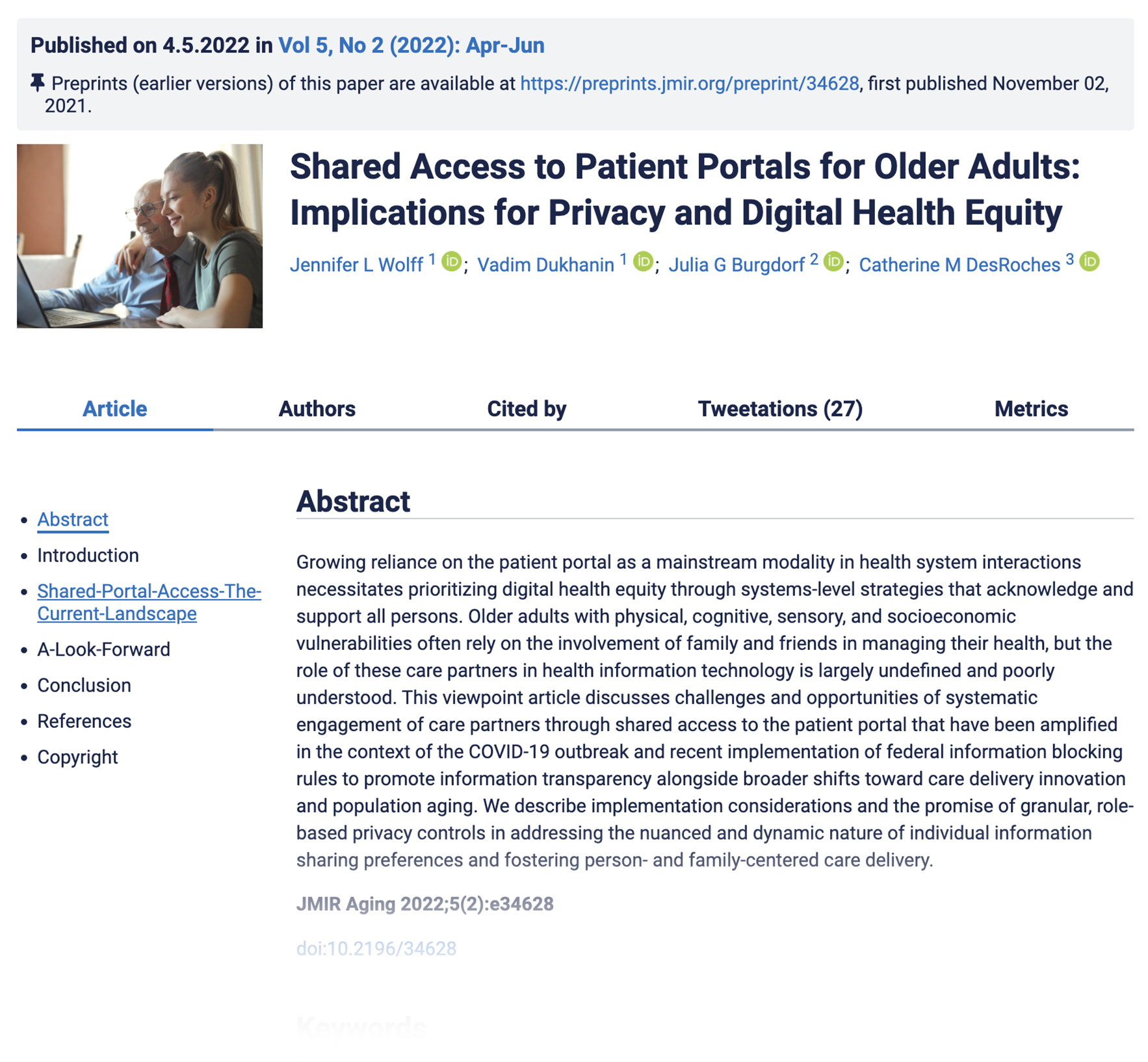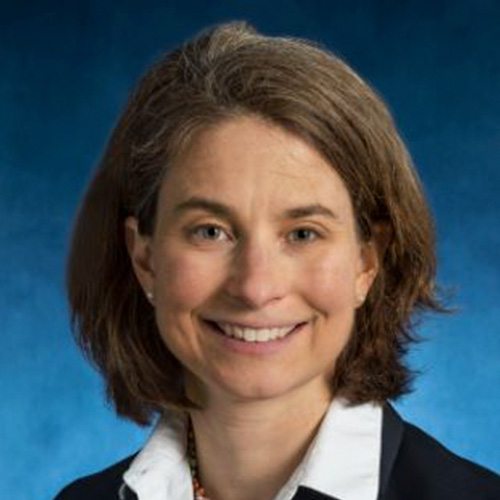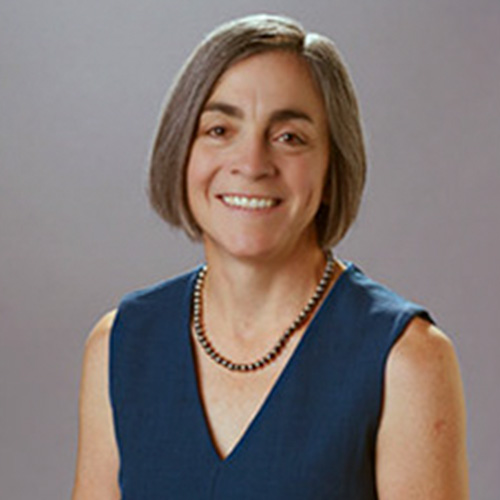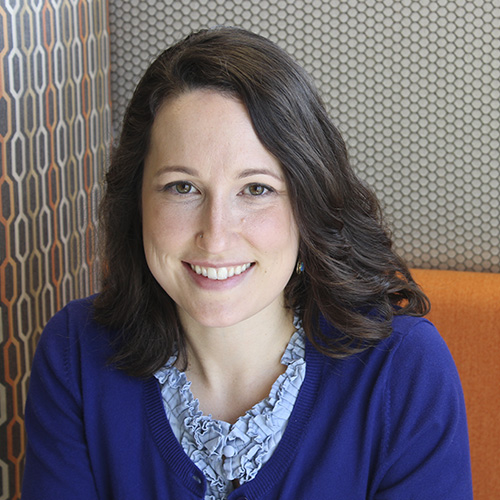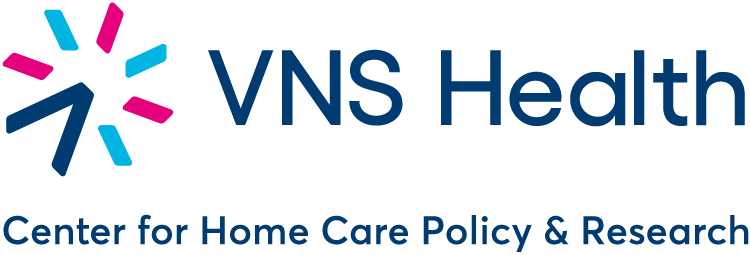
Who is a care partner? Care partners co-manage care in many different ways. They may arrange or schedule services, join patients in visits, or provide emotional support. They may participate in making important decisions about care. Care partners are often family members, but may also be neighbors, friends, or others with a close relationship. Care partners may or may not be involved in the provision of hands-on assistance with daily activities.
If you are a patient or a care partner, take a look at this helpful resource from OpenNotes.
Why Is It Important to Help Care Partners Work with Health IT Resources?
Millions of Americans have a family member or friend who helps manage their health and care. Care partners have a profound effect on the quality of care and resources but are often not well supported by healthcare systems. Care partners often struggle to get the information they need to care for others.
Read Our Issue Briefs:
Shared Access to the Patient Portal (2025)
This new Issue Brief, co-authored by Roger C. Lipitz Center for Integrated Health Care at the Johns Hopkins Bloomberg School of Public Health and Beth Israel Deaconess Medical Center, highlights the urgent need to modernize policies around shared access to patient portals, particularly for older adults. It emphasizes that despite the potential for shared access to improve safety, coordination, and caregiving, current practices often result in insecure workarounds and inequitable experiences for care partners.
Connecting Care Partners through Health Information Technology (2022)
The Issue Brief highlights explorations and original research led by the Roger C. Lipitz Center for Integrated Health Care at the Johns Hopkins Bloomberg School of Public Health and Beth Israel Deaconess Medical Center. We outline existing patient portal functionalities and how we are developing, testing, and scaling new care partner-oriented technologies that will engage care partners more effectively and efficiently in care.
Current Projects
Our Funders
February Quarterly Meeting: Shared Access to the Patient Portal for Older Adults Learning Collaborative
We are working on patient portal-based solutions to help older adults and their care partners get the information they need.
Join us Wednesday, February 11, 2-3pm EST
We welcome health care organizations and staff, professionals, patients, clinicians, vendors, and care partners.
Contact Deb Wacheheim, [email protected],
to learn more or register to attend.
Watch our November 2024 webinar: Supporting Patients & Care Partners Through Health Information Technology
Research
Catherine M. DesRoches, Deborah Wachenheim, Jessica Ameling, Aysel Cibildak, Nancy Cibotti, Zhiyong Dong, Alexandra Drane, James Henderson, Isabel Hurwitz, Jennifer Meddings, Jody Naimark, Kimberly O’Donnell, Christine Winger, Sarah Stephens Winnay, Jordan Young & Jennifer L. Wolff
Dukhanin V, Wolff J, Gleason K, Wachenheim D, Salmi L, Gonzales M, Parshley M, Epstein S, Mohile S, Farrell T, Supiano M, DesRoches C & the Shared Access Project Team
DesRoches CM, Wachenheim D, Ameling J, Cibildak A, Cibotti N, Dong Z, Drane A, Hurwitz I, Meddings J, Naimark J, O’Donnell K, Winger C, Winnay SS, Young J, Wolff JL
Kelly T. Gleason, PhD, RN,Catherine M. DesRoches, DrPH,Mingche M. J. Wu, MSPH, et al
Patient Portals Fail to Collect Structured Information About Who Else is Involved in a Person’s Care
Salmi L, Peereboom D, Door DA, Graham LR, Wolff JL, DesRoches CM
Wachenheim D, Hurwitz I, Dukhanin V, Wolff J, DesRoches CM.
Gleason KT, Powell D, DeGennaro AP, Wu MM, Zhang T, Wolff JL
Dukhanin V, Wolff JL, Salmi L, Harcourt K, Wachenheim D, Byock I, Gonzales MJ, Niehus D, Parshley M, Reay C, Epstein S, Mohile S, Farrell TW, Supiano MA, Jajodia A, DesRoches CM, The Shared Access Project Team.
DesRoches CM, Walker J, Delbanco T.
Jackson S, Mejilla R, Darer J, Oster N, Ralston J, Leveille S, Walker J, Delbanco T, Elmore J.
Sara L. Jackson, Hannah Shucard, Joshua M. Liao, Sigall K. Bell, Alan Fossa, Thomas H. Payne, Lisa M. Reisch, Andrea C. Radick, Catherine M. DesRoches, Patricia Fitzgerald, Suzanne Leveille, Jan Walker, Joann G. Elmore
Wolff JL, Darer JD, Larsen KL.
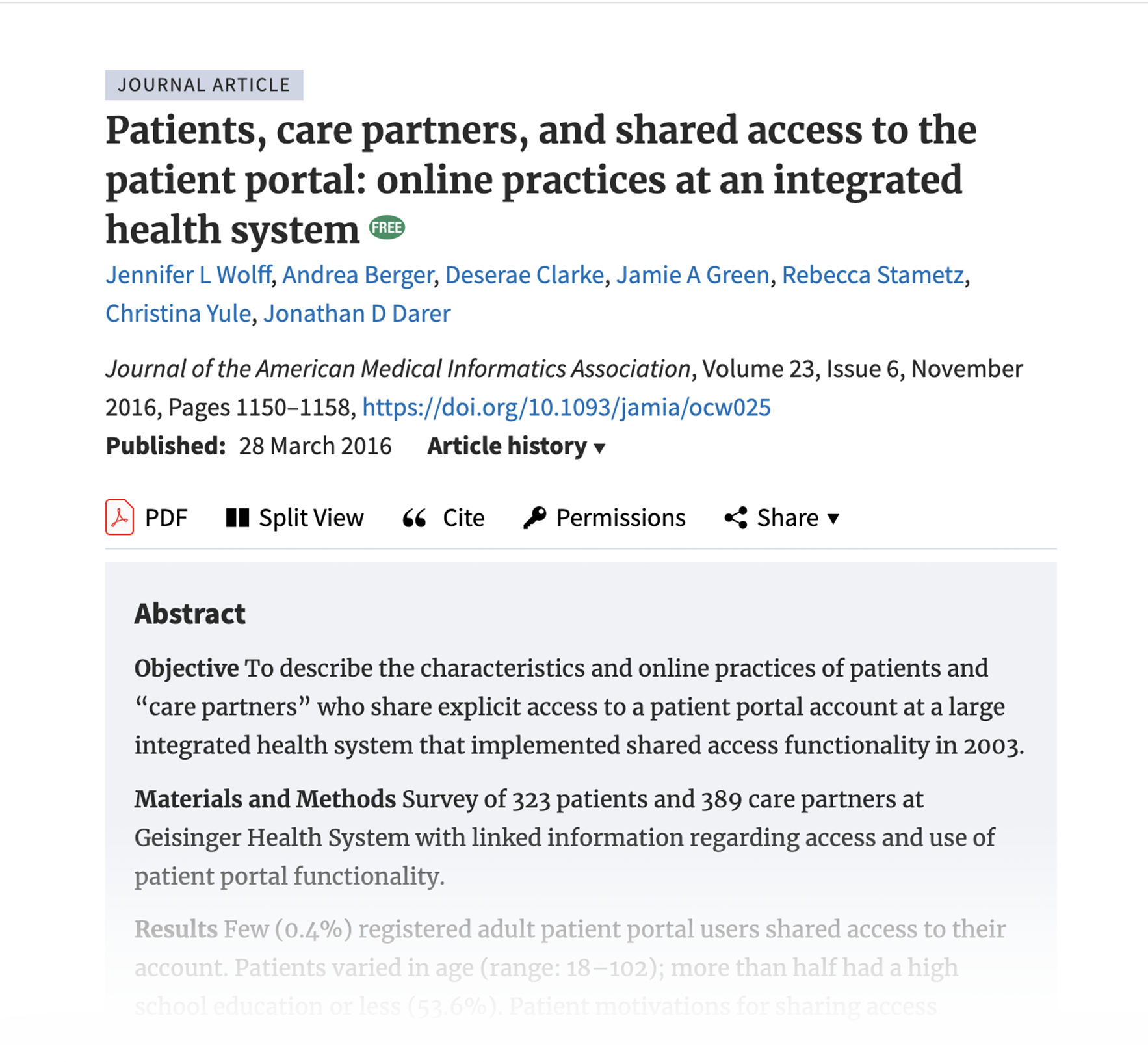
Wolff J, Berger A, Clarke D, Green JA, Stametz RA, Yule C, Darer JD
Wolff JL, Darer J, Berger A, Clarke D, Green JA, Stametz RA, Delbanco T, Walker J.
Wolff JL, Kim V, Mintz S, Stametz R, Griffin JM
Wolff JL, Aufill J, Echavarria D, Heughan JA, Lee KT, Connolly RM, Fetting JH, Jelovac D, Papathakis K, Riley C, Stearns V, Zafman N, Thorner E, Levy HP, Guo A, Dy SM, Wolff AC
Wolff JL, Aufill J, Echavarria D, Blackford AL, Connolly RM, Fetting JH, Jelovac D, Papathakis K, Riley C, Stearns V, Zafman N, Thorner E, Levy HP, Guo A, Dy SM, Wolff AC
Wolff JL, Dukhanin V, Burgdorf JG, DesRoches CM
Leadership
Eugene and Mildred Lipitz Professor, Department of Health Policy and Management, Johns Hopkins Bloomberg School of Public Health
Director, The Roger and Flo Lipitz Center to Advance Policy in Aging and Disability, Johns Hopkins Bloomberg School of Public Health
Associate Professor of Medicine, Harvard Medical School
Director, OpenNotes, Division of General Medicine, Department of Medicine, Beth Israel Deaconess Medical Center
Program Manager, The Roger and Flo Lipitz Center to Advance Policy in Aging and Disability, Johns Hopkins Bloomberg School of Public Health
Senior Project Manager, OpenNotes, Division of General Medicine, Department of Medicine, Beth Israel Deaconess Medical Center






